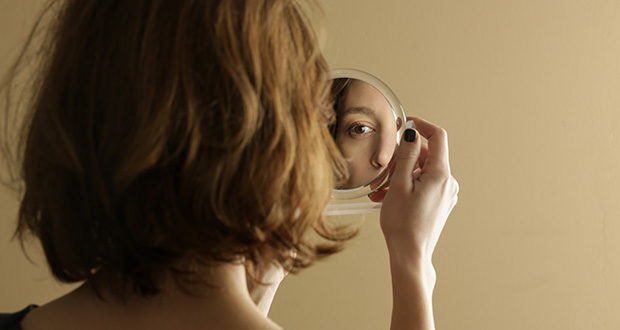A nurse working in a recovery centre for people affected by an eating disorder says she hopes to turn around the stigma attached to the illness.
Alanah started her job as an acting nurse at the Queensland-based Wandi Nerida unit, Australia's first residential recovery centre for people with an eating disorder.
She's been a registered nurse for five years and received her Master's in Mental Health Nursing in 2019.
Eating disorders are a type of mental illness typically characterised by problems around disordered eating or body weight control and a severe concern with body weight or shape.
Alanah says negative attitudes could cause additional health complications since the illness is often already shrouded in secrecy and shame.
"Australians are getting better, but it's still very present," she says.
"There are definitely people who don't understand and pass it off as a behaviour that isn't real.
"But it's not a choice – it's a serious life-threatening mental illness."
It's estimated one million Australians, or 4 per cent of the population, are living with an eating disorder at any given time.
They have one of the highest mortality rates of any mental health illness – they're one and a half to twelve times more at risk than the normal population.
Yet, one in four Australians believes eating disorders are a choice and that people can change their behaviour if they want to.
"It's a perfect storm of different things that happen to a person that will present this illness," Alanah says.
"During Covid, more and more Australians are being diagnosed.
"It's becoming its own epidemic."
Alanah says the nursing role of treating people living with an eating disorder is 'quite unique.'
Her team treats anyone over sixteen through a holistic care program in their 25-acre block in the Mooloolah Valley on the Sunshine Coast.
Aside from medical monitoring and supportive meal therapy, nurses keep an eye out for any signs of physical or mental decline.
"As our patients start to re-nourish, some of their behaviours might change," Alanah shares.
"Many of them will become more depressed because they don't have the eating disorder to numb their feelings.
"So we watch out for things like that."
Nurses also sit down during meal therapy and eat with the patients while modelling what would be considered a normal way to eat food.
Although managing distressed patients during meal times can be challenging, Alanah says any positive developments are 'always very rewarding.'
She says that when patients come in severely malnourished, their brains aren't working at capacity.
"But as we feed them and their cognition comes back, we see their little personalities come out.
"They become more engaging – a lot of them are funny.
"So, seeing little bits of a true person and not just an eating disorder is really rewarding."
Alanah says it's crucial the treatment centre offers an unbiased and safe space to prevent stigma from impacting the patients.
"A lot of people are very adamant that this is a middle-class white woman disease, and that's the only people that we'll see.
"So, there are a lot of cultural aspects that we're missing as well."
In 2016, 95 per cent of hospitalisations diagnosed with an eating disorder were females.
While it's estimated 63 per cent of people affected by an eating disorder are female, and 37 per cent are men, research suggests males are underrepresented.
Australia's major peak advocacy group around eating disorders suspects health professionals could be overlooking the illness in men because of gender bias.
Alanah says we can demystify and challenge stigmatised attitudes when the public starts to speak more openly about eating disorders.
"Listening to and learning from people voicing lived experiences is a good way of spreading awareness.
"It provides hope that people don't have to live like this and can recover.
"I think those conversations just have to start happening because otherwise, how are we going to know?"
Do you have an idea for a story?Email [email protected]
 Nursing Review The latest in heathcare news for nurses
Nursing Review The latest in heathcare news for nurses

